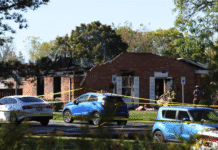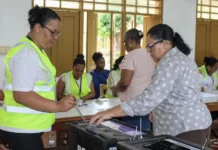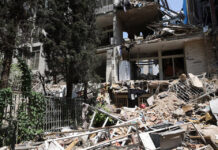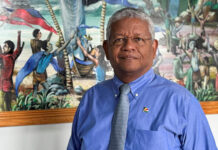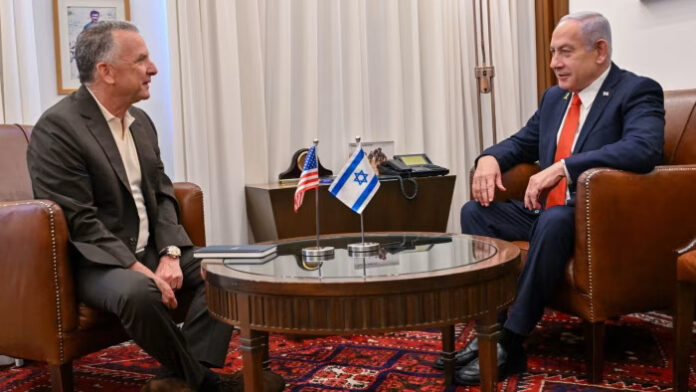
U.S. special envoy Steve Witkoff met Israeli Prime Minister Benjamin Netanyahu on Thursday in an urgent effort to revive stalled Gaza ceasefire talks and address a worsening humanitarian crisis, as international criticism mounts over the situation in the besieged enclave.
Witkoff’s visit comes as Gaza teeters on the brink of famine. The enclave’s health ministry reports 156 deaths from starvation and malnutrition, including over 90 children, while global hunger monitors warn that famine is unfolding.
Shortly after Witkoff landed in Israel, former U.S. President Donald Trump posted on his Truth Social platform: “The fastest way to end the Humanitarian Crises in Gaza is for Hamas to SURRENDER AND RELEASE THE HOSTAGES!!”
Following the meeting, a senior Israeli official indicated that Israel and the U.S. were converging on a broader strategy to secure the release of all hostages, disarm Hamas, and demilitarize Gaza, moving beyond the current framework of a limited truce. However, the official provided no further details.
The White House confirmed that Witkoff will travel to Gaza on Friday to inspect food aid efforts. “The special envoy and the ambassador will brief the president immediately after their visit to approve a final plan for food and aid distribution,” said press secretary Karoline Leavitt.
Ceasefire talks mediated by Qatar and Egypt have stalled, with a U.S.-backed proposal for a 60-day truce and partial hostage-prisoner exchange facing deadlock. Meanwhile, Israeli forces continue operations across Gaza, with at least 23 Palestinians killed on Thursday alone, including 12 near the Netzarim corridor, where aid was being distributed.
Amid rising civilian hunger, Israel has agreed to 10-hour daily pauses in some areas to allow limited humanitarian access. But the U.N. says the current volume of aid is “far from enough,” with residents facing risks from both Israeli forces and looters while seeking food.
Calls for Hamas to accept a ceasefire are growing, as it continues to hold around 50 hostages, including 20 believed to be alive. Protests by families of hostages have intensified outside Netanyahu’s office and in Tel Aviv.
Netanyahu remains firm that the war will not end until Hamas is disarmed and removed from power, a stance echoed by his far-right coalition partners, some of whom also support annexing Gaza and the West Bank. Hamas, meanwhile, insists resistance will continue until an independent Palestinian state is established with Jerusalem as its capital.
On the diplomatic front, divisions are widening. France, Canada, and Britain have indicated support for recognising a Palestinian state, drawing Israeli condemnation. Meanwhile, the U.S. imposed sanctions on unnamed Palestinian Authority and PLO officials for allegedly obstructing peace efforts, a move that distances Washington from its European allies.
German Foreign Minister Johann Wadephul, currently visiting the region, reiterated Germany’s position: negotiations toward a two-state solution must begin, but recognition of Palestinian statehood should only come at the end of that process.
With over 60,000 Palestinians killed since the war began in October 2023, and little progress on diplomacy, the path to peace remains as fraught as ever.
Written By Rodney Mbua



